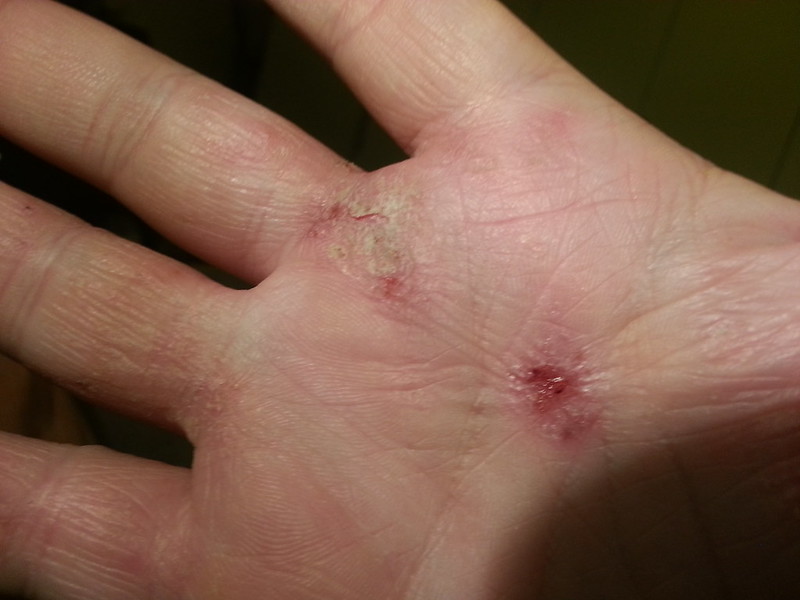
A Pfizer drug currently under regulatory review for treating atopic dermatitis now has early data showing that it beat Regeneron Pharmaceutical’s blockbuster seller Dupixent in a head-to-head study. But the fate of Pfizer’s abrocitinib remains uncertain as the FDA continues a review of safety data that could have implications across this entire drug class.

With the Rise of AI, What IP Disputes in Healthcare Are Likely to Emerge?
Munck Wilson Mandala Partner Greg Howison shared his perspective on some of the legal ramifications around AI, IP, connected devices and the data they generate, in response to emailed questions.
Atopic dermatitis, commonly referred to as eczema, is an autoimmune disorder that leads to red and itchy skin. The Pfizer drug is as a once-daily oral tablet while Regeneron’s drug is a subcutaneous injection given every other week. The Pfizer drug was tested in a Phase 3 clinical trial enrolling about 600 volunteers. In preliminary data announced Monday for the 26-week study, Pfizer said abrocitinib beat Dupixent on the two main goals that assessed both drugs according to a scale that measures eczema severity.
While the oral formulation and clinical data showing abrocitinib’s superior efficacy suggest it could have a competitive edge against Dupixent, safety may be the stumbling block. Abrocitinib is a small molecule that blocks Janus kinase (JAK) 1, an enzyme believed to modulate cell-signaling proteins involved in the development of atopic dermatitis. Currently approved JAK inhibitors carry the FDA’s strictest warning on their labels flagging safety risks. Rheumatoid arthritis (RA) was the first target for JAK inhibitors, and three have passed the regulatory bar for RA, including Pfizer’s tofacitinib, which was approved in 2012 for that condition and is marketed under the name “Xeljanz.”
An FDA decision on abrocitinib was expected in the second quarter of this year, but in April Pfizer announced that the agency’s review was extended by three months to the third quarter. In an update announced last month, Pfizer said the FDA had notified the company that it would not meet the revised target date for regulatory decisions on abrocitinib in RA and for Xeljanz expanding that drug’s approval to ankylosing spondylitis, inflammatory arthritis affecting the spine. According to Pfizer, a factor the FDA cited is the ongoing post-marketing safety review of Xeljanz in RA. The review followed a January report post-marketing results in RA showing that Xeljanz was not better compared to an older class of drugs as assessed according to the association with cardiovascular problems and cancer.
Pfizer said at the time that full data from the post-marketing study were not yet available and it was working with the FDA to review the results and analyses as they become available. Abrocitinib is not the only drug whose fate hinges on that FDA review. Also in limbo are regulatory decisions for JAK inhibitors from AbbVie and Eli Lilly.
Dupixent, which Regeneron markets under a partnership with Sanofi, accounted for more than $4 billion in sales last year. In addition to atopic dermatitis, the drug also has approvals in asthma and chronic rhinosinusitis. In the abrocitinib/Dupixent head-to-head study results reported Monday, Pfizer said a larger percentage of patients treated with its drug experienced adverse events compared to those given Dupixent. The company did not specify how many patients experienced adverse events or what the nature of those problems were. But it said that the proportion of patients who experienced adverse events were similar in both treatment arms.
Two deaths occurred in the group given abrocitinib, one attributed to Covid-19 and the second one classified as a major adverse cardiovascular event. Pfizer said clinical trial investigators deemed those deaths as unrelated to the study drug.
There were no cases of cancer of venous thromboembolism reported in the study. Pfizer added that the safety profile of abrocitinib was consistent with earlier studies. In results from an 838-patient Phase 3 study that tested two doses of abrocitinib against Dupixent and a placebo, nausea was reported in 11.1% of patients in the high dose of abrocitinib; 4.2% of patients in the low dose group. Acne occurred in 6.6% of those in the high dose group and 2.9% in those given the low dose. The results were published in the New England Journal of Medicine in March.
Pfizer said that full results from the latest abrocitinib study will be submitted for presentation at a future scientific meeting, and for publication in a medical journal. The company added that it plans to share the data with the FDA and other regulatory bodies “at the appropriate time.”
Photo by Flickr user Oregon State University via a Creative Commons license














